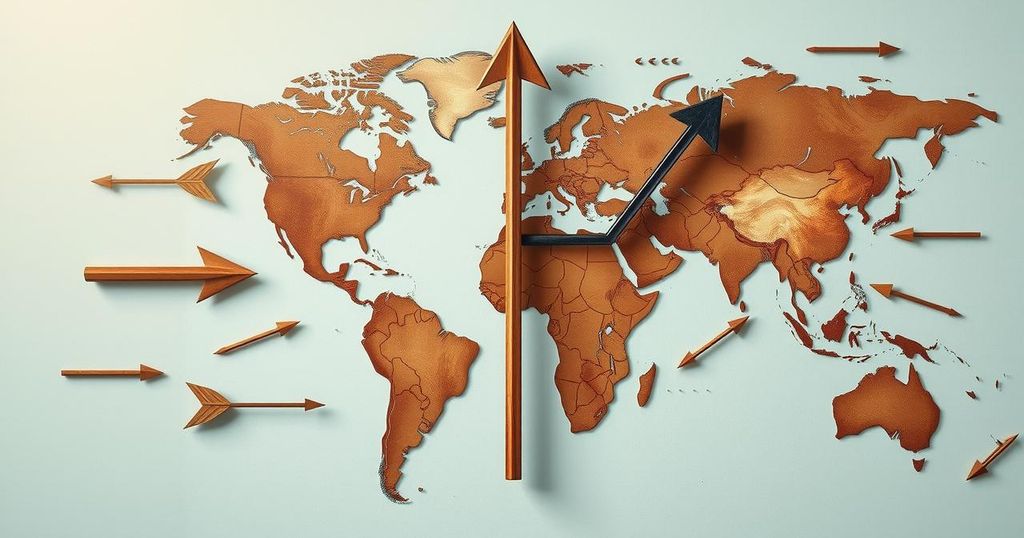Iran faces strategic uncertainty as US strikes against Houthis and Israeli actions against Hamas unfold. Tehran seeks to strengthen ties with Russia and China while addressing regional tensions and condemning foreign aggression. The effectiveness of Iran’s diplomacy amidst its proxy networks significantly impacts its geopolitical standing and influence.
The recent US military strikes against Iranian-backed Houthis in Yemen, coupled with Israeli Defense Forces’ actions against Hamas in Gaza, have left Iran perplexed regarding its response. With escalating tensions and fears of a major conflict, Iranian officials express caution. Supreme Leader Ali Khamenei warned against trusting any overtures from the current US administration, leaving Tehran in a strategic dilemma.
Iran’s Foreign Minister, Abbas Araqchi, engaged in discussions with Russian Deputy Foreign Minister Alexander Grushko in Tehran. The dialogue focused on enhancing bilateral relations and regional peace, as reported by Iranian state media. Notably, Iran has been supplying kamikaze drones to Russia for its conflict in Ukraine while seeking to bolster ties with both Russia and China in various domains.
The two officials also addressed recent discussions held in China involving delegations from Russia, China, and Iran on nuclear issues. Iran’s objective in these talks was to secure common interests and uphold international law. Araqchi condemned US and UK military actions in Yemen and criticized Israel’s treatment of Palestinians, urging greater action from Muslim nations during Ramadan.
In an effort to navigate the US and Israeli military pressure, Iran is pursuing multiple objectives, including strengthening relations with Russia and China and alleviating economic sanctions. Iranian Ambassador Amir-Sa’eed Iravani has denounced aggressive rhetoric from US officials, emphasizing Iran’s commitment to oppose such provocations.
Ultimately, Iran appears to be opting for diplomacy to manage the ongoing hostilities. However, their dilemma lies in their historical support for proxies such as the Houthis and Hezbollah. Should these alliances weaken, Iran risks losing significant regional influence and might find its networks of support transitioning from strategic assets to burdens, complicating their geopolitical standing.
In summary, Iran finds itself at a critical crossroads, grappling with the ramifications of US and Israeli military actions while attempting to strengthen ties with Russia and China. The firm stance against foreign aggression underscores Tehran’s commitment to its regional goals but raises questions about its response to its proxy networks amid rising tensions. As Iran navigates this complex landscape, its approach to diplomacy may ultimately shape its future geopolitical landscape and influence.
Original Source: www.jpost.com




